- Home
- Brian Hodge
Picking the Bones Page 14
Picking the Bones Read online
Page 14
Abraham feels his heart lighten. Imagine…producing such levity after years spent living with the grimmest visions any man ever pulled from his soul.
He raises his gaze to Gaspar, inviting him to explain.
“Goya went to France to live, I went to work,” Gaspar says. “The Olympic Circus, Polito’s Grand Menagerie…the greatest spectacles you could ever hope to see. It was a better life than I could’ve had for myself here, I’ll tell you. Goya loved the circus. And he loved to watch me.”
“You worked with snakes?”
“No, no. That snake there belonged to an African fellow. He had some big ones, too, made woman faint sometimes. No, I was an acrobat. And,” he says with pride and mischief, “I performed with a petomane quartet.”
Abraham nods. He should probably know what this is, but doesn’t. Worse, he’s afraid it shows.
“We farted. At will,” Gaspar explains. “We could even play tunes. They were all big men, the rest of them. I was littlest. They called me ‘The Piccolo.’”
Abraham can’t remember the last time he laughed with such delight. “And can you, still…?”
“You shame one of us, sir, but I don’t know if it’s me or yourself.” Gaspar rolls his eyes. “Who wants to hear an old man fart?”
Abraham grins, then nods at the paper. “You bested the snake, then…?”
Gaspar sits very still, staring past his dangling feet toward the tiles.
“I never bested anything,” he says, quietly now. “There were some men from the audience one afternoon. They caught me alone. They thought it would be funny to take me to the snake wagon, between the reptile shows, and feed me to the boa. They laughed more then than they did during our performance. ‘Here’s your little piglet,’ they kept telling it. ‘See how he squirms and squeals!’ The snake wasn’t interested, but…” Gaspar does not look up. The memory seems like a scab that has never mended. “My friend Francisco stopped them. He hit two of them with his cane.”
“A brave man,” Abraham says, “especially for one so aged.”
“Well, I suppose by then, after the war, he had seen enough of what men do to others when they think no one is around to stop them.” Gaspar rolls his shoulders. “They probably would’ve fed Francisco to the python, but then the African came running. He wasn’t nearly so gentle with them as Francisco was.”
Gaspar wills up a smile, as if to exile the memory. Abraham looks at the drawing one last time; there’s nothing more to ask about it. He’s already known that Goya continued to work the whole time he was in France, as feverishly as ever, until the last two weeks of his life. Portraits, as always. Lithographs of bulls. A French milkmaid so reposed one could almost hear her thoughts. He knows that. Yet he finds it so heartening to learn that the man who painted the walls of La Quinta could later do this simple sketch of a smiling dwarf crushing a snake.
If you could know such lightness after such despair, he tells the artist, then there must be hope for all of us who confront what God seems to have forsaken.
He places the drawing into Gaspar’s hands, where it’s folded as carefully as a flag, then returned to his pocket.
*
Later he takes Gaspar out past the city, to the house. Gaspar shuffles from painting to painting, looking them up and down, although less like a visitor to a museum than someone finally meeting acquaintances he has only heard about.
“Not that I’m displeased to see them,” he says, “but why do you show these to me?”
“I know you didn’t meet Goya until after these were painted and left behind…but did he ever tell you anything of his life here? Or about the paintings themselves?”
“The man is fifty years dead, almost, what does it matter?” Gaspar raps his walking stick on the floor as sharply as if he were planting a flag. “Do you ask for yourself, or for someone else…that snobby man who found me?”
Abraham tells him about the Baron, how he’s bought the house and intends to peel the paintings from the walls. He tells Gaspar nothing of what happened when they first attempted this.
“And what does he want with them then?”
“To exhibit them. To show them as any painting should be shown, when done with such—” Abraham glances at the forlorn dog staring into his mottled void “—skill and power.”
“If Francisco meant for them to be seen, don’t you think he would’ve put them on canvas? He didn’t have to paint on his walls, you know. He could afford canvases. My friend was a wealthy man. If he chose to paint these on the walls, then they should stay on the walls.”
“They won’t last here, Gaspar. The river…she decays them a little more each passing year. Would you rather see them crumble? Would you rather see them lost?”
Gaspar leans heavily upon his stick, and does not answer while staring at the floor. When he looks up again, he’s on the move, stumping forward and brushing past Abraham on his way to the stairs.
“I’ll tell you what I do know,” he says, trusting that Abraham is following close behind. “The Goya I knew was more like a child again than any man I ever met. Not like his mind was gone—I mean free like a child, before the world expects anything of him. He left his home and his country and all the people who’d made him rich out of their own vanity, and he went to a place were nobody expected anything of him. Almost eighty years old and he couldn’t taste enough of the world again. He maybe didn’t walk as fast as he used to…but he still moved like a man who’d left a terrible weight behind.”
They’re downstairs now, near the front door, flanked by the house’s master and mistress from five decades past—Leocadia on one side, Goya’s long-bearded proxy on the other. Gaspar pauses to stare at it in farewell, and the demonic visage that bellows into the old man’s ear.
“Of course he painted the things he did,” Gaspar says, and bustles out the door. “What choice did he have?”
*
Over the next few days they wander Madrid together. He’s lodged in the city before, seen plenty of it, but with Gaspar’s help he’s looking at it with new eyes, seeing details he always overlooked before.
It is the ghost of Goya’s Madrid: Here, bullet scars in a wall that’s never been repaired; there, a plaza whose air weighs heavy with memories of blood and bayonets; and there, a church bell that tolled to mourn the dead in their rotting heaps…everywhere, echoes of executions and uprisings, the revenants of grief and rage.
Gaspar seems to remember it all, even though Abraham calculates he would have been just two or three years old when Napoleon’s armies first seized Spain. His first recollections undoubtedly must be of war, as terrible a war as has ever been fought, years of slaughter and starvation and atrocities…on all sides.
They seem so far away from it now, these people in the streets and cafés of Madrid—the proud men with their confident swaggers, the colorful women with their dark flashing eyes, the priests in somber black—and they are far from it. For most, it was their parents’ and grandparents’ war.
But it could happen again, and Goya dared to know it.
The sleep of reason produces monsters, he once captioned an etching, and for this alone Abraham has come to love him.
He feels that he knows the man better now: Goya, haunted by the specters of war and famine, humbled by illnesses and the theft of his hearing, more than once turning from commissioned portraits to use his brushes as his way of shrieking…his only defense against the world permitted by the same aristocracy who’d made him rich.
Half a century later Abraham can hear the screams. He and Gaspar may tour Madrid by day…but at night he leaves the city to stare once more at the walls.
So what had happened at La Quinta? Had Goya poured so much despair into its plaster that, after he’d left it behind like an amputated limb, it had festered? Or had some even grimmer business been undertaken?
“That house has a hold on you, I can tell,” Gaspar says. “You think of his money and talents and fame…and then you see those walls. Are you thi
nking he was a Faust, maybe? That he made a wicked bargain somewhere along the way?”
They’ve stopped for the afternoon at a café, out of the heat and the dust, to rest their sore feet. If Gaspar notices the grins and glances from men who pass by the table, puffing themselves up to look larger still beside him, he doesn’t show it. Perhaps after so many years, he is blind to them.
Abraham shakes his head. “No, my friend, I don’t. I’ve talked to men who’ve been accused of it, to other men who freely swore they had…but every time, I could find no evidence that devils had answered any such invitation. I think devils take what they can, and leave the contracts to lawyers.”
He’s drinking absinthe this afternoon, the French way, poured over a sugar cube and into water to leaven the bitterness of the wormwood. It’s a tonic that he sometimes permits himself, like a decoction he might brew for a patient. The slow, deliberate ritual of preparing it is intoxicating in itself.
Gaspar sighs as he gazes out the window to the street, the passing women. “He bought me a prostitute once. In Bordeaux. Now that was an act of true friendship.”
“I suppose,” Abraham says, “that would depend on the whore, jah?”
“But you wonder why Francisco would do such a thing for me, don’t you? Why he would tell me anything. Not just me, but anyone like me. Don’t you?”
Abraham doesn’t want to be cruel…but yes, he’s wondered. The Goya he was told of at the Prado was an ambitious man who didn’t shy away from affectations to enhance his stature in society. In such a world, a dwarf was more apt to be a pet than a friend. But, for all that, men change as they stoop and slow.
“Well, even I don’t know, really,” Gaspar says. “He said I reminded him of one of the other happiest times of his life—not long after he went deaf, when he left his family behind and took up with that Duchess. She was his benefactor for a time, and he loved her, I think…before she tired of him, the same as she tired of any man except for the next one.” Gaspar rubs the smooth round top of his walking stick. “She kept a man like me. She named him Love.” Idly, he now reaches with the stick to tap at the toes of his shoes. “But I think Francisco maybe needed someone to tell things he couldn’t even tell the canvas. He knew I’d be safer than most—who would think to ask me?”
“Or perhaps,” Abraham muses, “if he had any such things to say, he told them to a friend he knew would always remember, in case someone did think to ask.”
Gaspar smiles at the thought, then frowns. “Those paintings on the walls? He talked of them only once…but for a long time. I think he was afraid of them. When he finally seemed ready to say something about why he painted them, he stopped. He told me to be glad of my size, that I would be too small to see, maybe. ‘Who by?’ I asked. He thought awhile, then he just said what a terrible thing it is for a man when the universe notices him. That most go unnoticed, but when it happens, no good can come of it…because the universe is unkind, and will try to destroy that man and his world around him.
“You spoke of devils, and Francisco painted them…except I don’t think he believed in them anymore. I think he believed in something worse, and hoped he had escaped from it. But whatever it had to do with the paintings, he wouldn’t say.”
This explains much.
And nothing.
And Abraham suspects that this unlikely confessor has nothing else to tell about the paintings. A pity; he’s enjoyed Gaspar’s company.
Gaspar seems to sense it too. “Hey!” he cries. “We should go to the bullfights tomorrow! He loved the bullfights. You can’t really know Goya unless you’ve gone to the bullfights.”
*
Much later, after the moon is a high icy sliver, he again finds himself back at La Quinta del Sordo. His first absinthe, hours earlier, has not been his last. He’s known of poets in France who celebrate its derangement of the senses and maybe that’s what he needs now. This house is no place of science, or reason…and now, listening to the green whispers of each glass he drank, he wonders if it isn’t a place entirely forgotten by God.
A single lantern in his hand, he’s surrounded by black—the black of night, the black of the paintings, the black of their themes.
Beside the door, the weariest old man who ever lived leans on his cane, his eyes closed and wearing an expression that could be surrender, or that of a last long flight into dreams. At his ear looms the subhuman face, with its bulbous nose and bellowing mouth, pressing so close the old man must feel the warm mouldy reek of his breath.
Abraham whirls, sure that he feels it on his own neck.
But the house is silent, empty of life.
“I know your secret now,” he tells Goya, in a cracked tone that carries far less authority than he would like. “I know what you feared above all. Because I have always feared it too.”
And the house is silent, yet full of purpose.
His eyes return to the face on the wall, the horrid muse and all it represents. It is the face of chaos itself…that terrible void from which God yanked the world, and into which the world seems so eager to return.
What doctor would not fear such an enemy, once he has acknowledged its power? He’s seen it in the growths he’s cut from people, which return again and again. He’s seen it in the strength of madmen, madwomen; in diseases of the body and disorders of the brain. Its hurricane winds blow armies into war; its softest breaths urge men to feed dwarves to snakes. It steals senses. It destroys innocent sons while robbing fathers of the power to save them.
And it was here, he is certain, that Goya made his stand against it.
Abraham remembers his first impression of these darkened rooms…how they reminded him of caves, and the men who decorated their walls with the likenesses of animals. He has heard a theory that these primitives did so out of superstition, to control and appease the beasts they hunted, or that hunted them.
But tonight, at least, he can believe that men and women of all epochs show wisdom, in their way. And he longs for the miracle of five minutes with Goya, so he might ask: Could the chaotic forces that put their designs upon a man be appeased, be bargained with, if he dredges up enough bitterness and desolation from the chaos of his own soul, and makes of them an offering?
In the flickers of the lantern, he imagines that the lone visible eye of the ugly head blinks…languidly, as if in contemplation. His hand darts out to touch the wall and feels only old paint, old plaster.
But the house is no longer silent. From the floor overhead comes the sound of blows, cudgels splitting flesh and breaking bone, and the grunts upon impact. They’re soon drowned out by a greater cacophony, a multitude of shuffling and stomping feet, madmen on pilgrimage braying homage in a groundswell of discordant voices.
Abraham imagines it must be the sound of chaos laughing.
He cannot fight this. He wouldn’t know where to begin.
But he can tell the Baron the place might best be burnt after all.
The pandemonium fades as he hurries away, turning his back for good on the far end of the room, where Saturn squeezes his son in rending hands. The house sends him into the night with a final gale of mockery: the sounds of teeth and lips and tender, tearing skin.
*
“It’s a spectacle worthy of the circus…almost,” Gaspar told him before they reached the bullfight arena, and indeed it is, wilder than anything Abraham expected.
There isn’t nearly as much division between the audience and the toreros as he thought, men and boys constantly clambering over the wooden barricade to drop into the ring and play a part in the show, taunting and harassing the bulls, then springing from their path. Some escape unscathed, scrambling back into the stands to celebrate with a wineskin. Others are slammed aside by glancing blows from the massive bodies, but injuries are minor.
The bulls, for their part, seem so maddened that they can’t decide which way to lunge, and when the toreros finally go to work, it’s an ugly, brutal business. The bulls race around the edges of their jail, h
ooves kicking up sprays of sand, and, finding no escape, let themselves be drawn into the macabre dance of hooked horns and flashing cape and saber, until the fight and life are bled out of them. The cheers rise on a tide of cigar smoke and sweat, and while the torero basks in the roar, a team of mules is driven in to haul the carcass away, and the sand is raked smooth again.
Gaspar shouts and applauds with the rest. When he slaps Abraham on the shoulder and laughs, Van Helsing sees that he can’t conceive of anyone failing to enjoy this. Yet, as with all terrible things that pass before his eyes, Abraham has trouble looking away. His heart is repulsed while his eyes continue to stare. His spirit sinks while his mind hungers for understanding.
He finds little mystery in why they all would find raucous comfort in watching lithe, graceful men vanquish such unbridled ferocity. He just thinks they and their champions are battling the wrong enemy.
“Francisco said he fought bulls when he was very young,” Gaspar says during a lull. “Before anyone cared about his art.”
“Is it true?”
“I don’t know. But if he didn’t, he should have.”
The tiered stands thicken with more and more people and the crowd pushes toward the center, late arrivals as well as those from the upper benches surging down for a closer look. Gaspar sputters with indignation and latches onto Abraham’s sleeve, tugging him toward the barricades and demanding a perch upon his shoulders. He stoops, reluctantly; he’s straddled by the thick little legs, then straightens. The jostling shoulders press them close enough to the barricade for splinters.
In the ring, a trio of fresh bulls has burst through the gate, driven by men on horseback and inciting a renewed free-for-all. They snort and paw at the ground while dozens spill over the barricade; a few strip off their shirts to whirl them like capes. A dismayed groan goes up when a man, too slow, is thrown by one bull, then trampled by another. The people want vengeance now—Abraham feels it crashing over the crowd like a tide, and all around him fists are waving and faces are contorting into hardened masks.

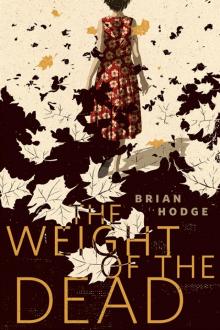 The Weight of the Dead
The Weight of the Dead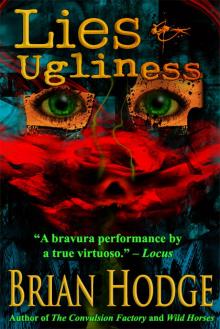 Lies & Ugliness
Lies & Ugliness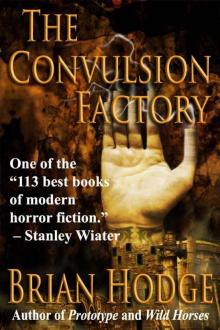 The Convulsion Factory
The Convulsion Factory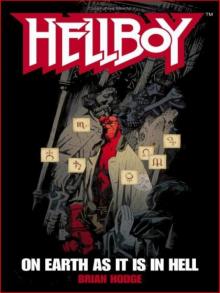 Hellboy: On Earth as It Is in Hell
Hellboy: On Earth as It Is in Hell Whom the Gods Would Destroy
Whom the Gods Would Destroy Picking the Bones
Picking the Bones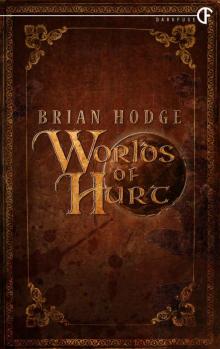 Worlds of Hurt
Worlds of Hurt Oasis
Oasis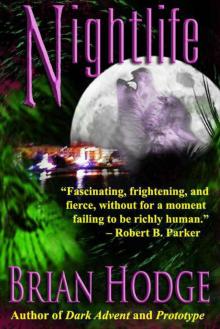 Nightlife
Nightlife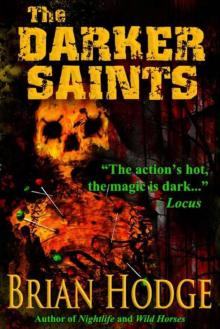 The Darker Saints
The Darker Saints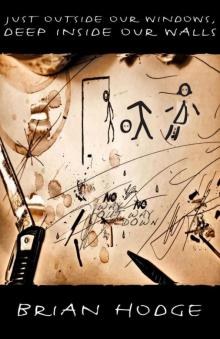 Just Outside Our Windows, Deep Inside Our Walls
Just Outside Our Windows, Deep Inside Our Walls A Haunting of Horrors, Volume 2: A Twenty-Book eBook Bundle of Horror and the Occult
A Haunting of Horrors, Volume 2: A Twenty-Book eBook Bundle of Horror and the Occult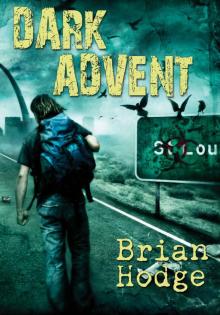 Dark Advent
Dark Advent Mad Dogs
Mad Dogs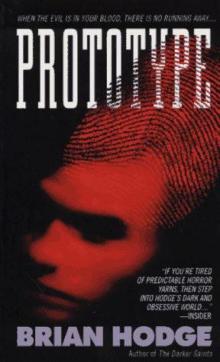 Prototype
Prototype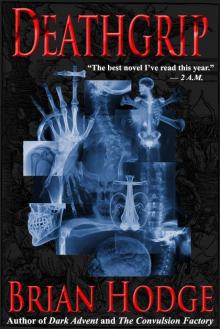 Deathgrip
Deathgrip Falling Idols
Falling Idols